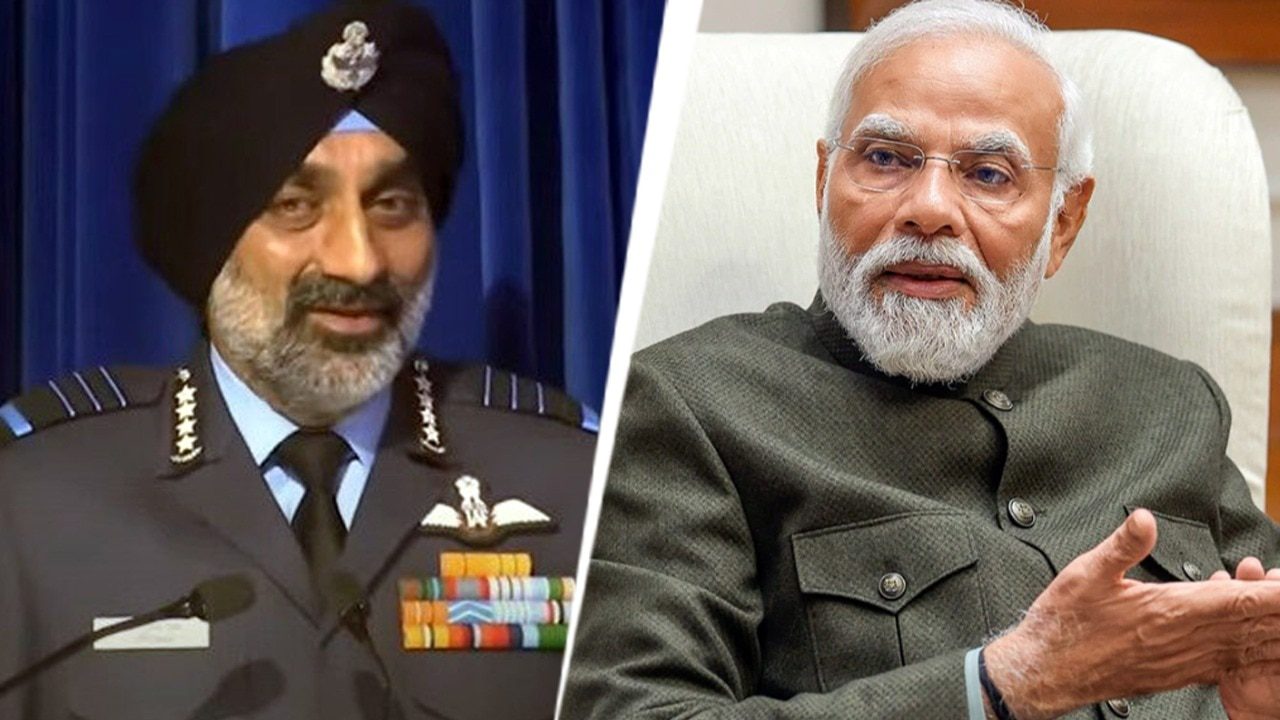Air Chief Marshal Amar Preet Singh on Sunday met Prime Minister Narendra Modi amid escalating tensions with Pakistan in the wake of the terror attack in Jammu and Kashmir’s Pahalgam last month, which killed 26 people.
PM Modi has been meeting the chiefs of the three armed forces to take stock of India’s possible military action against Pakistan in response to the April 22 Pahalgam attack.
On April 26, PM Modi held an important meeting with Defence Minister Rajnath Singh, National Security Advisor Ajit Doval, Chief of Defence Staff (CDS) Gen Anil Chauhan and other armed forces chiefs. In this one-and-a-half-hour meeting, PM Modi gave a “free hand” to the armed forces to take action against Pakistan.
Amid the possibility of taking military action against Pakistan, Army Chief Gen Dwivedi met PM Modi at his residence at his 7, Lok Kalyan Marg residence on April 30. External Affairs Minister S Jaishankar and NSA Doval also attended the meeting.
On May 3 at 6 pm, Navy Chief Admiral Dinesh Tripathi met PM Modi. The meeting lasted for an hour. On May 3, at 12 pm, Air Force chief Air Chief Marshal AP Singh also met the Prime Minister for about 40 minutes.
Amid rising tensions between India and Pakistan over the Pahalgam massacre, the Ordnance Factory Board has cancelled the leave of all its employees with immediate effect. This step has been taken at a time when defence preparedness has increased across the country.
On April 22, terrorists opened fire on a group of tourists visiting the Baisaran valley, a meadow which is accessible only by foot or horseback. In the process, 26 people, including a Nepali national, were killed in the carnage.
Terrorists singled out non-Muslim tourists and shot them at point-blank range after being asked to recite the Kalma, or the Islamic declaration of faith.
PM Modi has vowed that his government will hunt down the terrorists involved in the Pahalgam attack and their backers “at the ends of the earth”.
India downgraded diplomatic ties with Pakistan and took a flurry of measures, including the suspension of the Indus Waters Treaty, cancelling all visas issued to Pakistani nationals and shutting airspace to Pakistani airlines.
On the other hand, Pakistan, fearing Indian retaliation, announced tit-for-tit measures and suspended the Simla Agreement.
Anurag Dhole is a seasoned journalist and content writer with a passion for delivering timely, accurate, and engaging stories. With over 8 years of experience in digital media, she covers a wide range of topics—from breaking news and politics to business insights and cultural trends. Jane's writing style blends clarity with depth, aiming to inform and inspire readers in a fast-paced media landscape. When she’s not chasing stories, she’s likely reading investigative features or exploring local cafés for her next writing spot.




